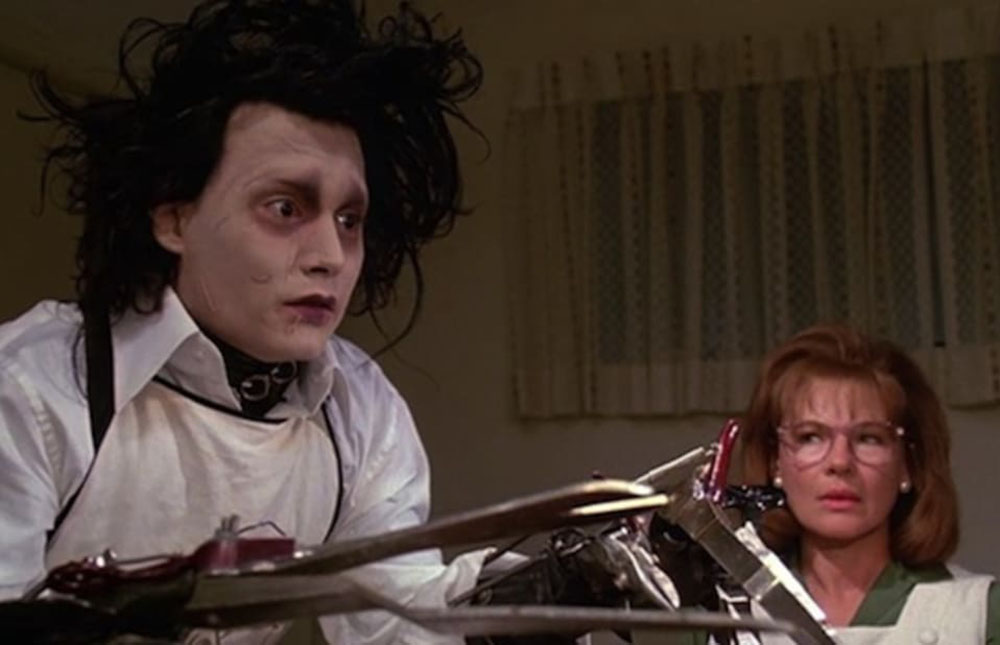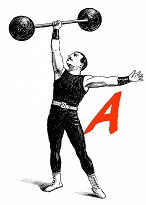“Edward Scissorhands,” the cinematic masterpiece by the beloved Tim Burton portrays the imaginative and sublime plot only someone of his personage can produce. After 31 years, Burton’s story of the boy with scissors for hands still remains effortlessly unique. The dark but sweet narrative of the plot creates a fairy-tale feel for older children and adults as well.
An ‘invention’ only half-finished
Edward (Johnny Depp) is created by an inventor (Vincent Price) who resides in a dark Victorian mansion overlooking the rest of the town. Unfortunately, the inventor passes away before he could finish creating Edward, leaving him with scissors for hands. The sharp contrast between the black mansion and the rest of the colourful town is visually appealing and emotionally invoking. The use of bright pastel colours enhances the story; the pink, yellow, and blue houses reflect the utopian paradise of 1980s American suburban culture. Burton satirises 1980s America with the town with the bright colours, nosy housewives, and scarce father figures. The perfection on the outside makes it easier for viewers to detect the holes on the inside behind closed doors.
The plot develops further when Edward is beckoned to join the community and live there by the kindly Avon lady called Peg (Dianne Wiest) after attempting to sell him cosmetics. Edward is unusual and different with his pale skin and Scissor hands. This intrigues most of the town; they fall in love with his skills and abilities as a gardener, dog groomer, and hair stylist.
Yet, as humans, we have our reservations about things or people we perceive as different. Members of the town constantly tell Edward they have ‘a doctor friend’ that can help to fix him. His scissor hands that make him so special are alternatively garner attention as a disability that needs fixing. We see this point further during Edward’s interview; a lady remarks that if he got normal hands, he wouldn’t be special anymore and just like everyone else. Despite being different, it is that difference that makes the town view him as special (be it good or bad).
Shining a light on a town’s imperfections
Edward coming to town puts a crack in the mirror that is apropos. His spontaneous arrival brings some variety into their lives; and although welcomed at first, they grow to hate what was ‘different’ once he showed any emotions that negated their conceptualisation of him. Peg’s neighbour Joyce (Kathy Baker) spreads rumours about Edward sexually assaulting her after he rejects her advances. Even when Edward speaks out about the encounter to Peg and her family, they change the subject without addressing it, maintaining the picturesqueness of the suburban town. Edward is also tricked into helping Kim (Winona Ryder) and her boyfriend Jim (Anthony Michael Hall) break into Jim’s house to steal from his father. All the blame is once again pinned on Edward.

A light shone on pressing societal issues
The police later let Edward go after the set-up. Subsequently, the town questions his moral compass due to the amount of time spent alone in the mansion. However, the authorities still alarmingly declare Edward is fine to go back into the general public. Burton can be applauded for this inclusion; it reflects today’s society where no one wishes to put in the time and effort to help people adapt and would rather they return to their individual lives.
The movie sheds light on a number of societal issues present; however, at the same time still maintaining some level of humour (like when Edward attempts to pick peas with his hands) and intrigue throughout. Regardless of the emotional ending, it’s really just a reflection of the reality we live in. “Edward Scissorhands” is a bittersweet tale that does an excellent job in describing what the story intended to do in the first place—explain where snow comes from.
“Edward Scissorhands” is currently available to stream on Hulu and rent on Apple TV.


